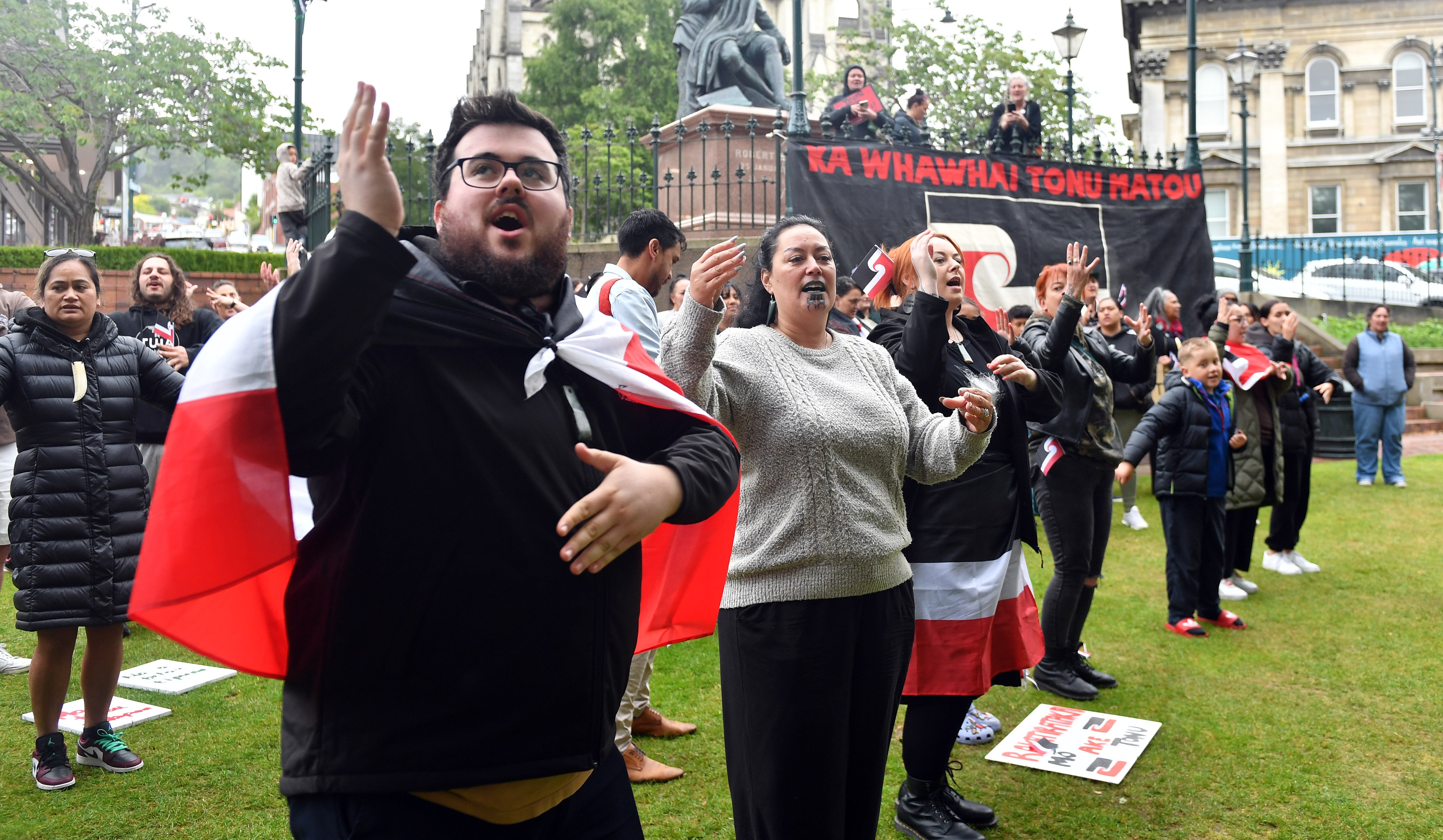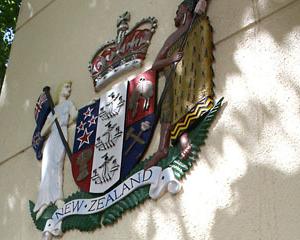In Dunedin, about 80 people gathered in the Octagon for a peaceful display of solidarity with Māori, and another 30 marched in the main street of Alexandra in protest at government policies which have been labelled "anti-Māori".
The gatherings were part of nationwide protests which caused widespread delays at key transport networks around the North Island.
There were no arrests.
Dunedin resident Paul Ellwood (Ngati Raukawa ki te Tonga) said he was heartened by the level of support for Māori in the Octagon yesterday.
"When the British got their foothold in, everything became very one-sided with the Treaty of Waitangi and it became about taking, rather than acknowledging the rights of Māori, and that went on for about 140 years.
"We’ve started to make a bit of progress over the last 40 years, and all the rhetoric coming from the leaders of the coalition just seems to be going to wipe all of that progress.
"I feel like they would prefer to cancel the Māori race, cancel me, cancel us back to assimilation."

Fellow resident Waiariki Parata-Taiapa said he took his children along to the protest because he was concerned about the potential impacts the government’s policies would have on their futures.
"I want my tamariki to grow up in the world that I want them to live in, which is with our language, our cultural practices and also our relationship to the environment."
In Alexandra, a group of about 30 people walked up Centennial Ave, waving flags and singing waiata, in what they called "a show of support" rather than a protest.
Uruuruwhenua Health kaiwhakahaere/chief executive and organiser Mel Kuiti said it was an opportunity to support colleagues in Te Aka Whai Ora, the Māori Health Authority.
"A lot of the work we do is funded by Te Aka Whai Ora... and also our partnership with Oranga Tamariki, to have better outcomes for whānau Māori and our mokopuna [grandchildren].
"All of that’s at risk for us now."
She said whānau wanted to stand up for the progress Māori had fought for and which they saw as at risk of being lost.
All of Uruuruwhenua’s contacts were government funded and she was uncertain about what next year looked like for the organisation.
"We go through this every year, every election — it just feels a bit more raw this time."
About 200 people protested in Invercargill.
Following the protests, Act New Zealand leader David Seymour said protesters backed by Te Pāti Māori had attempted to block roads and disrupt the opening of Parliament and New Zealanders’ lives, "just because they’re unhappy with the election result".
"It’s a sad day when a political party is protesting equal rights. They’re on the wrong side of history.
"New Zealanders want a respectful debate on the constitutional future of our country and that’s what they’ve voted for."
Mr Seymour said his party’s Treaty Principles Bill and proposed referendum "are needed to ensure a healthy debate on whether our future lies with co-government and different rights based on ancestry, or whether we want to be a modern, multi-ethnic liberal democracy where every New Zealander has the same rights".







